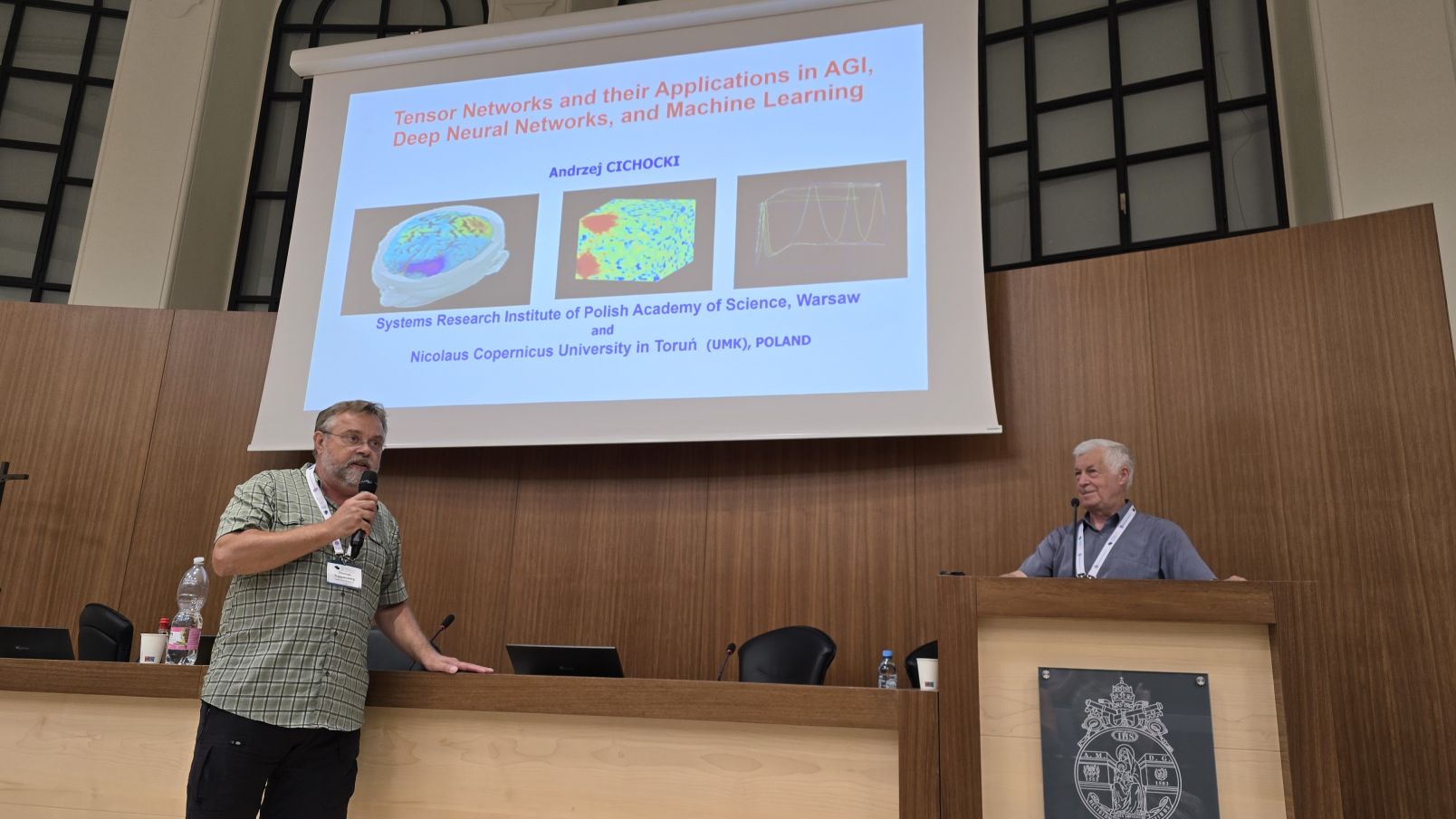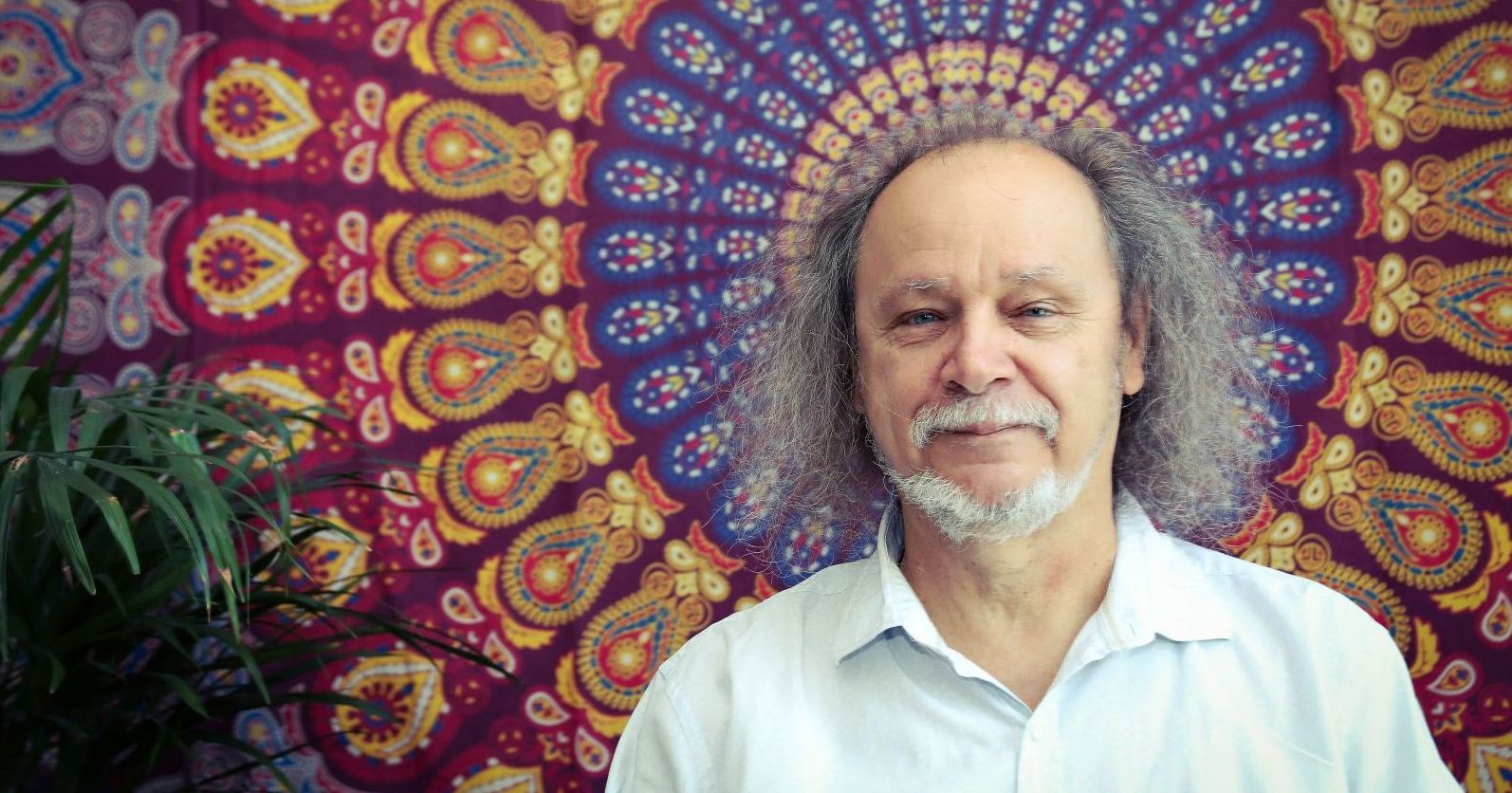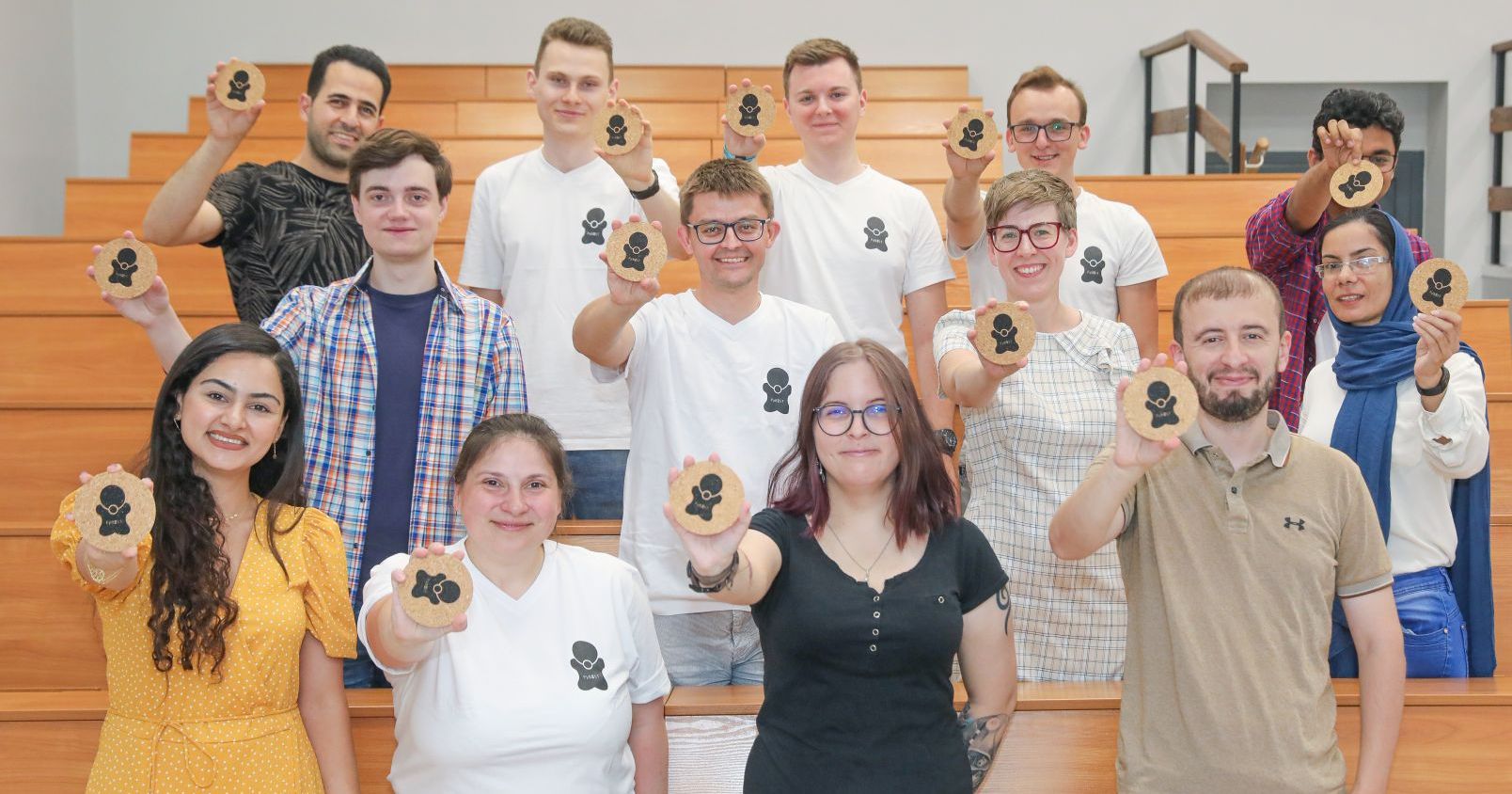 Exact sciences
Exact sciences
Prof. Andrzej Cichocki with the Gabor Prize
Prof. Andrzej Cichocki from the Faculty of Physics, Astronomy and Informatics at the Nicolaus Copernicus University, the most cited Polish computer science scientist and doctor honoris causa of our University, received the Dennis Gabor Award. This is one of the most important honours for outstanding achievements in the field of neural engineering and applications of artificial neural networks.
The Dennis Gabor Award is a prestigious award given annually by the International Neural Network Society (INNS) for outstanding achievements in the engineering applications of neural networks. It honours primarily long-term and groundbreaking discoveries in this field. The winner is announced at the International Conference on Neural Networks (IJCNN), which is recognised as the world's leading conference on neural networks, artificial intelligence and machine learning. It presents both academic papers and the application of research in industry. It is of great interest to specialists in the field - this year it was held at the Pontifica Universitata Gregoriana in Rome (30 June-5 July), with some 5,500 papers submitted, of which a third were accepted.
Prof. dr habil. Andrzej Cichocki was invited as one of the keynote speakers - this in itself was already a very high honour. He spoke about tensors and tensor networks, i.e., mathematical tools extending the idea of vectors and matrices to multidimensional arrays, which allows efficient processing and manipulation of multidimensional data and parameter reduction of deep neural networks. This has huge implications for the development of artificial intelligence. The Dennis Gabor Award further certified Prof Cichocki's status as the world's leading expert in neural networks.
Prof. dr hab. inż. Andrzej Cichocki studied at the Faculty of Electrical Engineering of the Warsaw University of Technology, where he received his M.Sc. degree in automation and electronics with honours in 1972, his Ph.D. degree in 1976, and his habilitation degree in 1982. He was awarded the title of professor in 1995 and was a fellow of the Alexander von Humboldt Foundation from 1984 to 1985. From 1995 to 2018, he directed laboratories in Japan at the Brain Science Institute, part of the research organisation RIKEN (Institute for Physical and Chemical Research). These were the laboratories 'Artificial Brain Systems' (within the Frontier Research Program from 1995 to 1997), 'Open Information Systems' (1998-2000) and 'Advanced Brain Signal Processing' (since 2000). They were all part of the Brain Style Information Systems Group, led by the director of the Brain Science Institute, Professor Shun-ichi Amari. The name of the laboratory 'Open Information Systems' emerged as a result of Professor Amari's collaboration with Professor R.S. Ingarden, former director of the NCU Institute of Physics, and referred to the scientific society 'Open Systems and Information Dynamics', which he founded in 2000. Professor Cichocki always took care to keep in touch with Poland. Most of his papers published in the best international journals also have - in addition to RIKEN - the affiliation of Polish research institutions. More than 30 young researchers from Poland, including several employees and PhD students from the NCU, have stayed in the laboratories under his supervision.

prof. dr hab. Włodzisław Duch
Currently, I am interested in finding new architectures and algorithms for learning specialised fast deep neural networks,' says Professor Andrzej Cichocki. - I am mainly interested in them for biomedical and engineering applications, such as brain-computer interface (BCI) or human-computer interaction (HCI), classification and analysis of human emotions, and creation of AI systems that would assist doctors in early detection and diagnosis of certain diseases.
Prof. Andrzej Cichocki is one of the world's best-known scholars working in neuroinformatics, artificial intelligence, neural networks, robot control, signal and image analysis in brain research, brain-computer interfaces and, in particular, blind signal separation methods, tensor analysis of biomedical data and early detection of Alzheimer's disease. Monograph A. Cichocki, S-i. Amari, Adaptive Blind Signal and Image Processing: Learning Algorithms and Applications has been cited more than 3,500 times. Nearly 700 of his scientific papers are indexed in ISI Web of Science, the number of citations reaches 26,000, In Google Scholar, which includes scientific conferences at which he has given numerous plenary lectures, the number of citations of his works exceeds 70 000, and the Hirsch index is over 120. Prof. Andrzej Cichocki is on the prestigious list of the world's most cited scientists in the interdisciplinary (cross-field) category and was awarded the title of Highly Cited Researcher (Web of Science - Calrivate) in 2021-2023 - awarded to the top 0.1 per cent of scientists worldwide whose citations rank in the top 1 percent of all citations.

Andrzej Romański
In 2013, Professor Andrzej Cichocki was honoured with an entry in the 'Golden Book' of the Warsaw University of Technology for outstanding professional achievements. In the same year, he was elected a member (Fellow) of the Institute of Electrical and Electronics Engineers (IEEE). The professor is also the recipient of numerous awards from the Minister of Science and Higher Education, the Rector of the Warsaw University of Technology and the President of RIKEN. In 2016, at Nicolaus Copernicus University, he became the coordinator of the 5-year project 'In search of sources of cognitive activity of the brain' within the Symphony 4 NCN competition, implemented by the NCU Faculty of Physics, Astronomy and Informatics and the NCU Interdisciplinary Centre of Modern Technologies (ICNT), the Marceli Nencki Institute of Experimental Biology of the Polish Academy of Sciences and the Institute of Physiology and Pathology of Hearing in Kajetany near Warsaw. The research carried out at the ICNT Neurocognitive Laboratory also involved staff from the then NCU Faculty of Humanities (cognitive scientists and psychologists). Thus, this is truly interdisciplinary research in extremely topical areas related to the analysis and interpretation of EEG and functional resonance imaging (fMRI) signals, neurofeedback techniques, neurocognitive technologies and behavioural and neurorehabilitation research.
In 2018, Prof. Cichocki was awarded an honorary doctorate by the Nicolaus Copernicus University Senate "in recognition of his achievements in brain research and the development of artificial neural networks, as well as his contribution to cognitive research conducted at the University in Toruń".
 NCU News
NCU News






 Exact sciences
Exact sciences
 Exact sciences
Exact sciences
